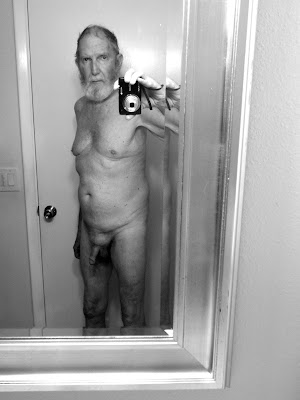My own research, along with generally accepted rules of textual criticism, has convinced that the most primitive texts we have in the Synoptic Gospels are in the Gospel of Luke. See, especially, my previous writings on the Beatitudes and the "Our Father." My own research, along with that of Professor George Howard, has convinced me that Matthew knew and used Luke. Almost everyone, these days, is agreed that Matthew knew Mark. Should I go all-in and opt for Lukan priority? Some of those who have done so, including Lockton in the 1920s and Lindsey some fifty years later, have offered very compelling evidence that Mark knew and used Luke. If this is so, and Matthew knew both Mark and Luke, then Streeter's so-called "minor agreements" (which are really not minor at all, and remain the major impediment to Streeter's Two-document Hypothesis) can be easily explained.
So far, so good. And yet I hang back. Why? Because of this question: If Mark knew and used Luke, and Luke's Gospel included the so-called "Q" material, then why did Mark not include the all-important "Q" material in his Gospel? How could Mark leave out the "Sermon on the Plain," which, in the hands of Matthew, became part of the Sermon on the Mount? The question, as it stands, is unanswerable. Either Mark's Gospel is prior to that of Luke, in which case the question does not arise, or it is secondary to Luke, as strongly suggested (to say the least) by the stylistic considerations brought forth by Lindsey (and also, apparently, by Lockton, though I've not yet read him). We cannot have it both ways. The only way out of this impasse, it seems to me, is to posit an Ur-Luke that did not yet include most of the "Q" material missing in Mark.
I have been using the long-familiar term "Q material," but that does not necessarily mean that I believe that there was a written "Q document." In fact, if Matthew knew and used Luke, there is no need of one. To explain the absence of this material in Mark, though, we would still need for there to have been an earlier, Q-less edition of Luke.
Luke's Gospel appears to have had a number of sources, and there is strong evidence that they were Hebraic, or at least composed in a Semitic language. Lindsey said that he found it very easy to translate Luke back into Hebrew, but found the same task to be extremely difficult when he tried it with Mark.
(to be continued)
Copyright © 2023 by Donald C. Traxler.


text_iaimp.jpg)
text_ap38.jpg)
text_ap37.jpg)
text_ap36.jpg)



text_ap35.jpg)
text_ap34.jpg)







text_ap33.jpg)